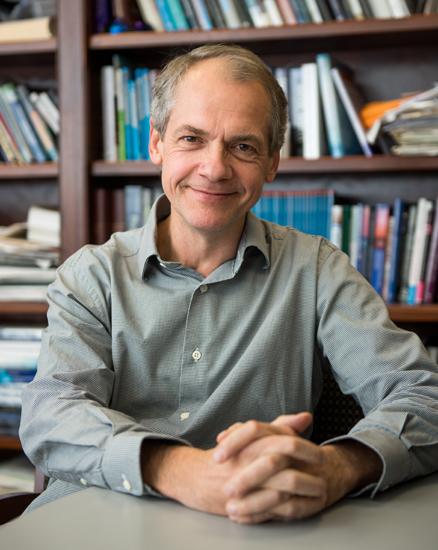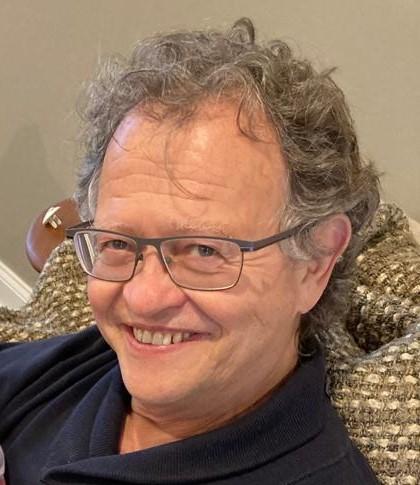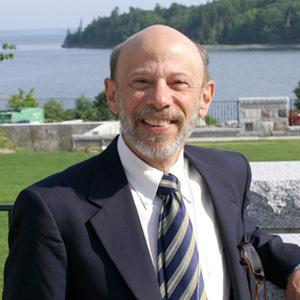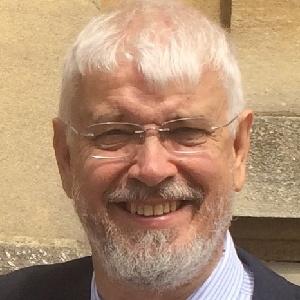Webinar
The field of psychotherapy has developed from different roots, and many clinicians and scientists still consider psychotherapy as a collection of unconnected groups of theories and associated interventions. This approach prevents a cohesive development of the discipline and a holistic treatment of patients. During the webinar, Professor Stefan G. Hofmann from the Philipps-University Marburg, Germany and Boston University, USA will talk about process-based psychotherapy, which takes the view that mental health problems are assumed to exist as systems of inter-connected elements.
The keynote lecture will be followed by a panel discussion on finding common ground for evidence-based psychotherapies.
Keynote Lecture: Process-based Psychotherapy
For decades, evidence-based therapy, such as Cognitive Behavioral Therapy (CBT), has been defined in terms of treatment protocols focused on syndromes as defined by the DSM and ICD. These psychiatric classification systems assume that psychological problems are expressions of latent disease entities. However, there is little evidence to support this restrictive assumption. A process-focused approach (Process-Based Therapy, PBT) is now emerging. This approach does not rely on the assumption that psychological problems are expressions of latent disease entities, but it does not rule it out either. Instead, mental health problems are assumed to exist as systems of inter-connected elements. As is true for many complex networks, such a change can occur abruptly once the network reaches a tipping point. PBT directly links treatment techniques to processes in the individual client, thereby linking classification to treatment based on functional analysis and complex networks. This offers a less restrictive and more externally valid alternative to the latent disease model, while offering exciting new directions for future research in psychiatry and is in line with personalized medicine.
Keynote Speaker

Stefan G. Hofmann, Ph.D. – is the Alexander von Humboldt Professor of Clinical Translational Psychology of the Philipps-University Marburg, Germany, and also Professor of Psychology at the Department of Psychological and Brain Sciences at Boston University. He has been president of ABCT and IACP, and is editor-in-chief of Cognitive Therapy and Research. He has published more than 400 peer-reviewed journal articles and 20 books. He has been included in list of a Highly Cited Researcher by Clarivate and Thomson Reuters since 2015, among many other awards, including the Aaron T. Beck Award for Significant and Enduring Contributions to the Field of Cognitive Therapy by the Academy of Cognitive Therapy. His research focuses on the mechanism of treatment change, translating discoveries from neuroscience into clinical applications, emotion regulation, and cultural expressions of psychopathology. For more information, see: www.bostonanxiety.org.
Panel Discussion
Is psychotherapy just a collection of different approaches? Searching for the common ground for evidence-based psychotherapies
Panel Host: Professor Dr. Winfried Rief, University of Marburg, Germany
Professor Rief is a clinical psychologist, member of the board of the European Association of Clinical Psychology and Psychological Treatment (EACLIPT), and Editor in Chief of Clinical Psychology in Europe.
* * *
Psychotherapy has developed from different roots, and many clinicians and scientists still consider psychotherapy as a collection of unconnected groups of theories and associated interventions. However, as long as psychotherapy is not considered as one academic and clinical field, progress and reciprocal stimulation of developments is seriously hampered. Goldfried labeled this stage as “prescientific”, and calls for search for a common ground, language and theory of psychotherapy, to develop one science and intervention model that could be used as overarching framework, before specifying into single approaches (Goldfried, 2020). Hofmann and Hayes believe that the evaluation of complete treatment packages (e.g., exposure for phobias) has reached its limit and needs more flexible, process-based, and problem-focused treatment planning, grounded in scientifically proven mechanisms of change (Hayes et al., 2020). As a consequence, training of young clinical psychologists and psychotherapists may require a switch from a single traditional “school” of psychotherapy to a competence-based education that can integrate different, scientifically proven methods, derived from different backgrounds (Rief, 2021).
A panel of experts representing different fields of psychotherapy will discuss how to overcome current obstacles to developing a common theoretical framework for diagnosis and treatment planning in psychological interventions.
Panelists

Professor Jacques P. Barber, Ph.D., ABPP – is Professor and Dean at the Gordon F Derner School of Psychology, formerly the Institute of Advanced Studies in Psychology at Adelphi University. He is Emeritus Professor of Psychology in the Department of Psychiatry and in the Psychology Graduate Group at the University of Pennsylvania. He is also Adjunct Professor of Psychiatry at New York University School of Medicine. Among his honors, he is past President of the Society for Psychotherapy Research and recipient of its early career award in 1996 and its Distinguished Research Career Award in 2014. He received the Distinguished Psychologist Award from the Society for the Advancement of Psychotherapy (Division 29, 2018) and the Research Award from the Society for Psychoanalysis and Psychoanalytic Psychology (Div 39, 2019). He is a licensed clinical psychologist in New York and Pennsylvania. His research focuses on the outcome and process of psychodynamic and cognitive therapies for specific disorders. He has published more than 280 papers, chapters and books in the field of psychotherapy and personality. Among his recent books are “Psychodynamic Therapy: A Guide to Evidence-Based Practice” (2010) and “Practicing Psychodynamic Therapy: A Casebook” (2014), both with Richard Summers. He is mostly proud of the students and post docs he has mentored during his career.

Bruce E. Wampold Ph.D., ABPP – is Emeritus Professor of Counseling Psychology at the University of Wisconsin—Madison and former Director of the Research Institute at Modum Bad Psychiatric Center in Norway. He is a Fellow of the American Psychological Association (Divisions 12, 17, 29, 45), is Board Certified in Counseling Psychology by the American Board of Professional Psychology, and is the recipient of the 2007 Distinguished Professional Contributions to Applied Research Award from the American Psychological Association, the 2015 Distinguished Research Career Award from the Society for Psychotherapy Research, and the 2019 Gold Medal Award for Life Achievement in the Application of Psychology from the American Psychological Foundation. His work is summarized in The Great Psychotherapy Debate: The Evidence for What Makes Psychotherapy Work (with Z. Imel, Routledge, 2015), which involves understanding psychotherapy from empirical, historical, and anthropological perspectives. Currently he is focused on improving the quality of mental health services by using deliberate practice of therapy skills used by the most effective therapists.

Professor Paul Salkovskis – is Director of the Centre for Psychological Health, Oxford Health NHS Foundation Trust and Professor of Clinical Psychology, Department of Experimental Psychology, University of Oxford. He has worked both as a full time clinician engaged in research, and as a full time researcher engaged in clinical work. His main area of research and clinical work is in the understanding and treatment of anxiety disorders in general, and more specifically in OCD, Panic and Agoraphobia, and health anxiety. He has contributed to psychological understanding and treatment in all of these areas. Paul’s research interests include a range of transdiagnostic factors including both cognitive (appraisal) and behavioural (safety seeking) factors. He also has expertise in Health Psychology and is a Practitioner Health and Clinical Psychologist. Paul has worked on Health Screening, Health Decision Making and the identification and treatment of psychological issues in “Medically Unexplained Symptoms” and “Long Term Conditions.” He has published extensively in all of these areas. He works with service user led organisations and has been President of the British Association for Behavioural and Cognitive Psychotherapies. He is also editor in chief of the journal Behavioural and Cognitive Psychotherapy.

Stefan G. Hofmann, Ph.D. – is the Alexander von Humboldt Professor of Clinical Translational Psychology of the Philipps-University Marburg, Germany, and also Professor of Psychology at the Department of Psychological and Brain Sciences at Boston University. He has been president of ABCT and IACP, and is editor-in-chief of Cognitive Therapy and Research. He has published more than 400 peer-reviewed journal articles and 20 books. He has been included in list of a Highly Cited Researcher by Clarivate and Thomson Reuters since 2015, among many other awards, including the Aaron T. Beck Award for Significant and Enduring Contributions to the Field of Cognitive Therapy by the Academy of Cognitive Therapy. His research focuses on the mechanism of treatment change, translating discoveries from neuroscience into clinical applications, emotion regulation, and cultural expressions of psychopathology. For more information, see: www.bostonanxiety.org.

